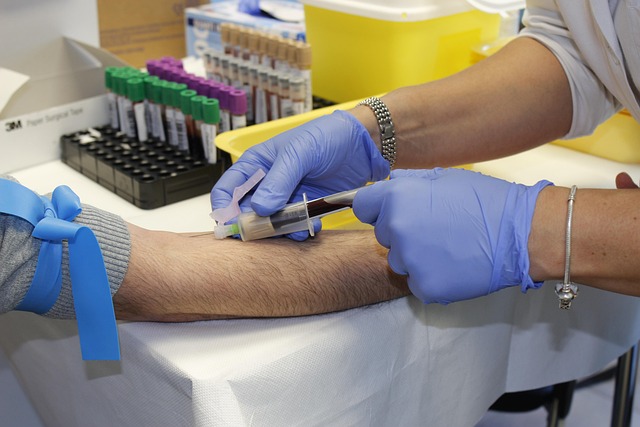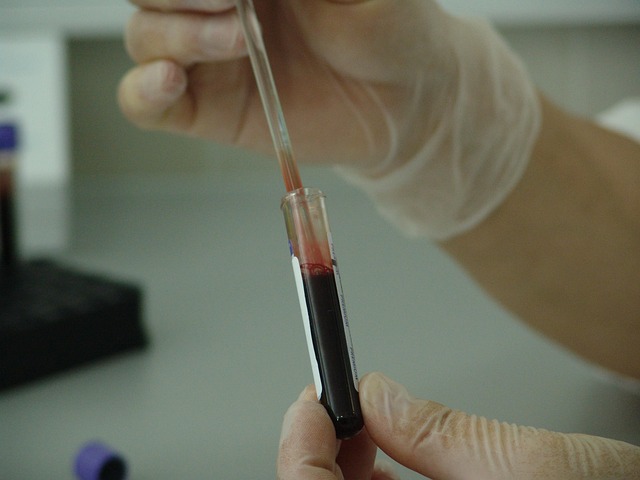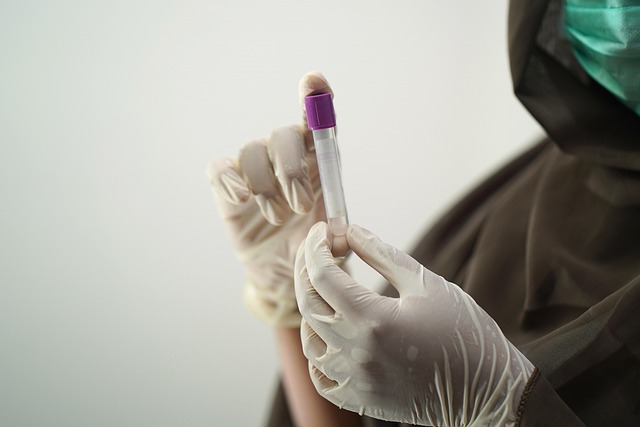The American Food and Drug Administration (FDA) has just given the go-ahead for a new blood test that diagnoses Alzheimer’s disease. Known as the Lumipulse test, this breakthrough diagnostic tool will allow patients to be diagnosed in the early stages when treatment is most effective. The Alzheimer’s blood test is capable of determining the presence of amyloid plaques in the brains of adult patients who are aged 55 or older.
The Exciting Potential Of the New Alzheimer’s Blood Test

The new Alzheimer’s blood test is able to measure both the tau and amyloid proteins present in human plasma. The presence of these proteins serves to indicate that damaging plaques are forming between the nerve cells of the brain. This buildup of plaque leads to a disruption of normal cognitive function. The biggest issue with treating Alzheimer’s is that it can develop for many years before symptoms arise. Without effective diagnostic tools, many individuals remain undiagnosed, enabling the disease to progress to a point where treatments are no longer effective. Considering that most scientists never even dreamed that there could be an effective Alzheimer’s blood test just 5 years ago, this breakthrough is regarded as a medical revolution.
Clinical Trial Showed Great Promise

Before the Alzheimer’s blood test could be approved, the FDA first needed to evaluate its efficacy. To achieve this, they evaluated data from blood samples taken from 499 adults with cognitive impairment. These samples were then analysed using the Lumipulse test. They were then subsequently compared with spinal tap test and positron emission tomography results, as these are known to be effective ways of determining the presence of amyloid plaques. The clinical trial showed impressive promise, with 92% of the patients who tested positive for amyloid plaques using the Alzheimer’s blood test also testing positive using the other verified methods.
Read More: Alzheimer’s: Newly Identified Risk Factor Worst in These US States, According to Map
Substantially Equivalent

Additionally, more than 97% of those who tested negative using the Alzheimer’s blood test similarly exhibited negative results using the spinal tap test or positron emission tomography scan. The Food and Drug Administration stated that the Alzheimer’s blood test results were “substantially equivalent” to a test that used spinal tap samples that had previously been authorized. While currently available methods are very accurate in identifying these damaging proteins, they are often very limited in their availability.
Existing Methods Are Expensive and Time-Consuming

Additionally, these types of tests can often be invasive, costly, and time-consuming. For example, just to get a PET scan, a patient would typically have to fork out up to $8,000. In comparison, the Alzheimer’s blood test would likely cost somewhere in the region of $500 to $1,000. Spinal tap tests cost even more, so this new method could really offer a much-needed lifeline to countless individuals. A simple drawing of blood is very convenient in comparison and comes with none of the associated side effects of brain imaging, such as radiation exposure.
Early Diagnosis Is Crucial To Positive Outcomes

Alzheimer’s disease is characterized by a progressive decline in cognitive abilities. Not only does an early diagnosis ensure more effective treatment, but it also allows the patient to take control of their lives while they still have the mental capacity to be proactive. Addressing the disease in its early stages also increases the effectiveness of future treatments. The disease often does not display any noticeable symptoms in the early stages. Therefore, people must get tested as early as possible. This way, they can start receiving the necessary treatment immediately, increasing their chance of slowing down the disease.
Other Promising Treatments On The Horizon

The Lumipulse Alzheimer’s blood test is the first of its kind to be approved by the Food and Drug Administration. However, there are several other promising tests available that have yet to be FDA-approved, such as the AD-Detect Test for Alzheimer’s Disease. However, according to the Alzheimer’s Association, no blood test can diagnose the disease on its own. Yet, it is increasingly being used as an initial, non-invasive method of detection. In addition to neurological examinations, medical history, and cognitive assessments, these types of blood tests could become more prevalent in the diagnostic process.
The Beginning of a Diagnostic Revolution

According to the chief scientific officer for the Alzheimer’s Drug Discovery Foundation, Howard Fillit, “This is just the beginning of a real revolution of how diagnosis is going to be made. As blood-based biomarkers continue to evolve, they will fundamentally reshape the landscape of Alzheimer’s care, creating a new landscape where precision medicine and prevention of the disease are possible.” This new method seems to have plenty of public support as well. In a recent survey, 9 out of 10 Americans said they would take the test if it were available.
The Bottom Line

This new blood test is a complete game-changer for detecting Alzheimer’s disease early and quickly. It makes getting checked much more affordable and less frightening than other available options. Early detection enables people to seek help sooner and make life decisions while they are still able. It isn’t a perfect test on its own, but it’s a significant step in the right direction. The fact that it only requires a simple blood sample is a huge advantage.
Read More: How to Reduce Toxic Tau Protein and Lower Alzheimer’s Risk

